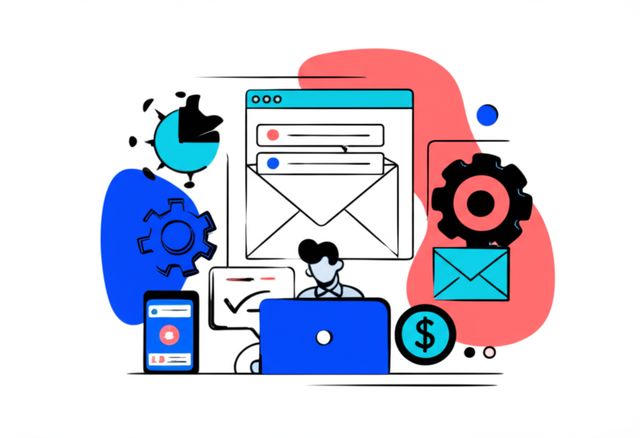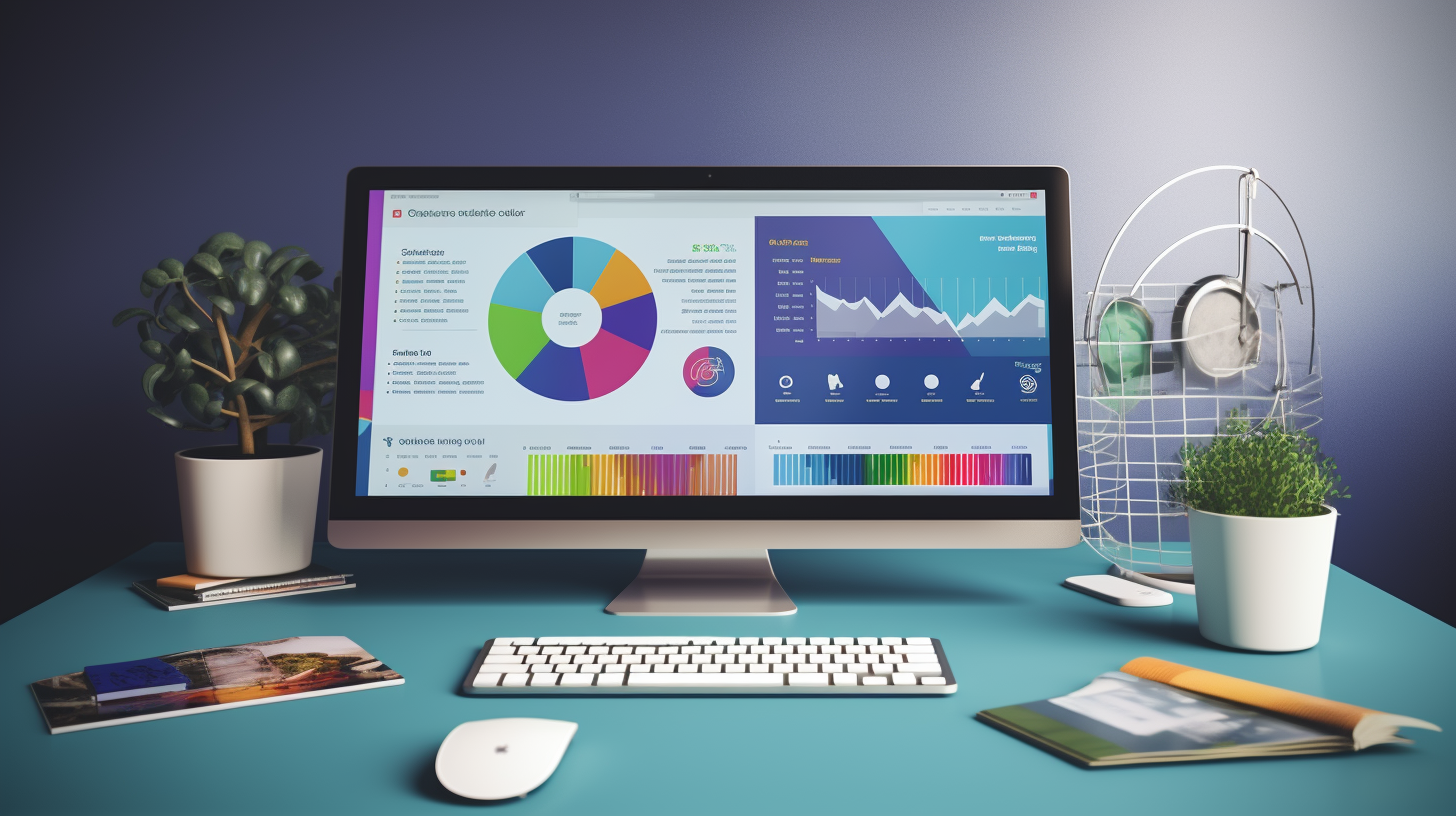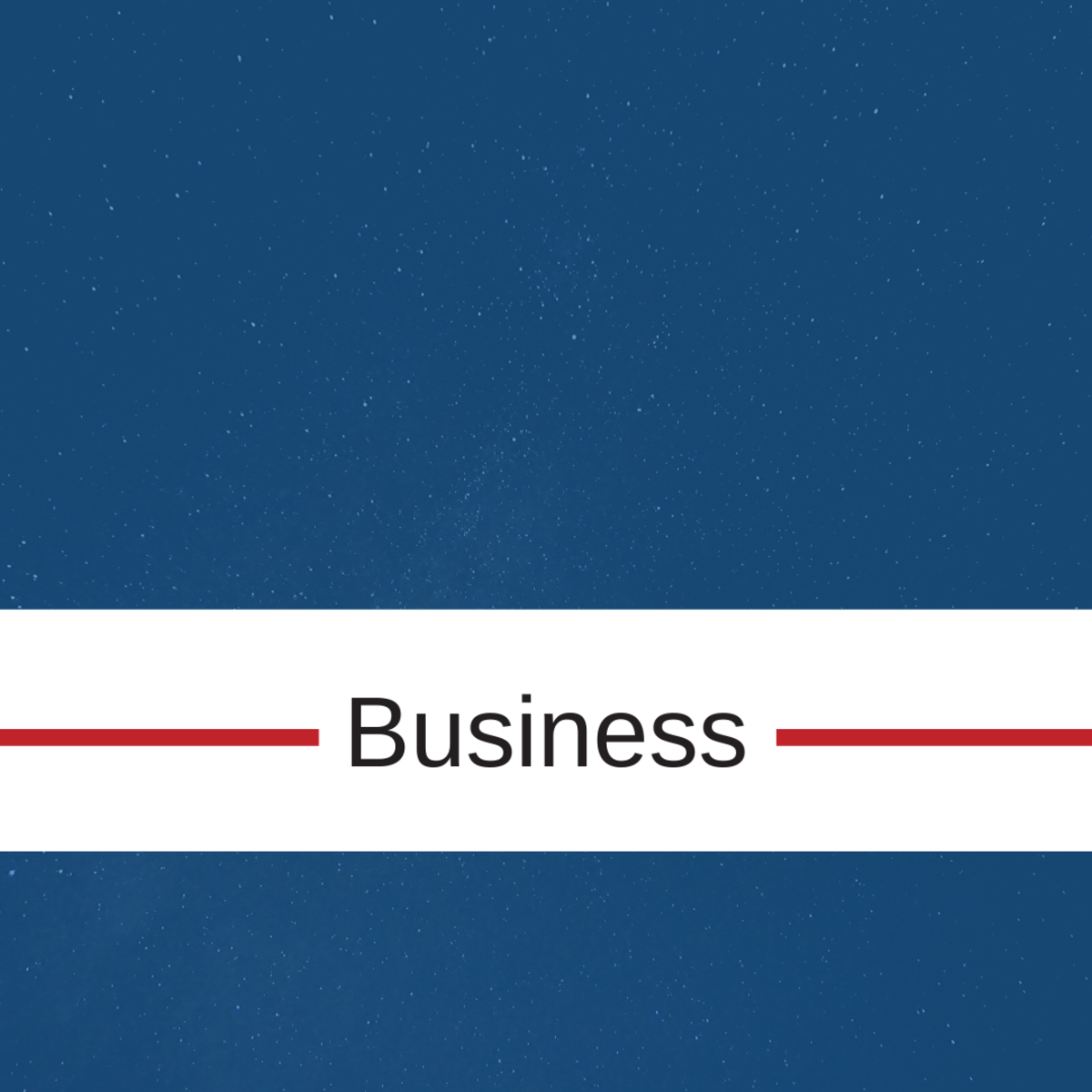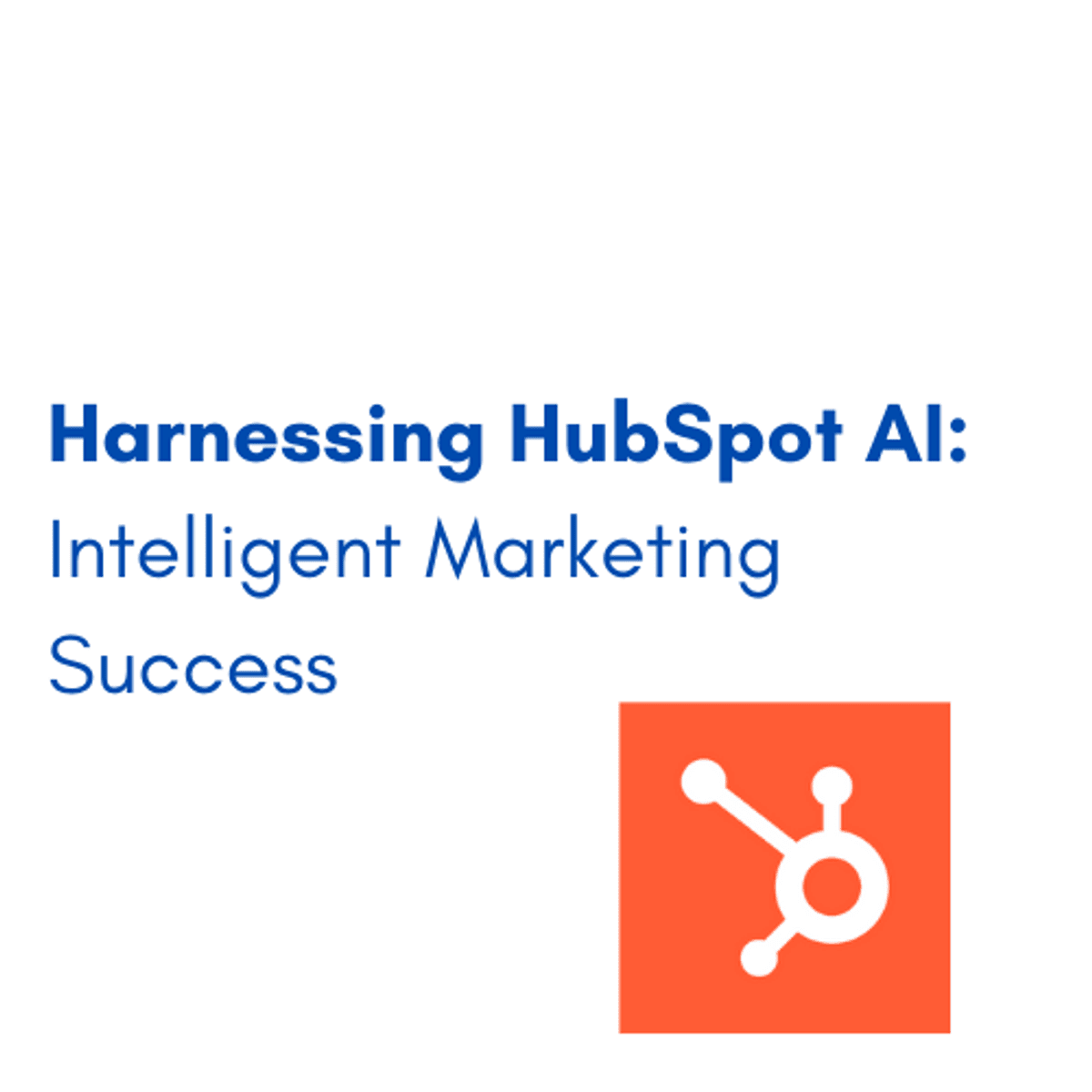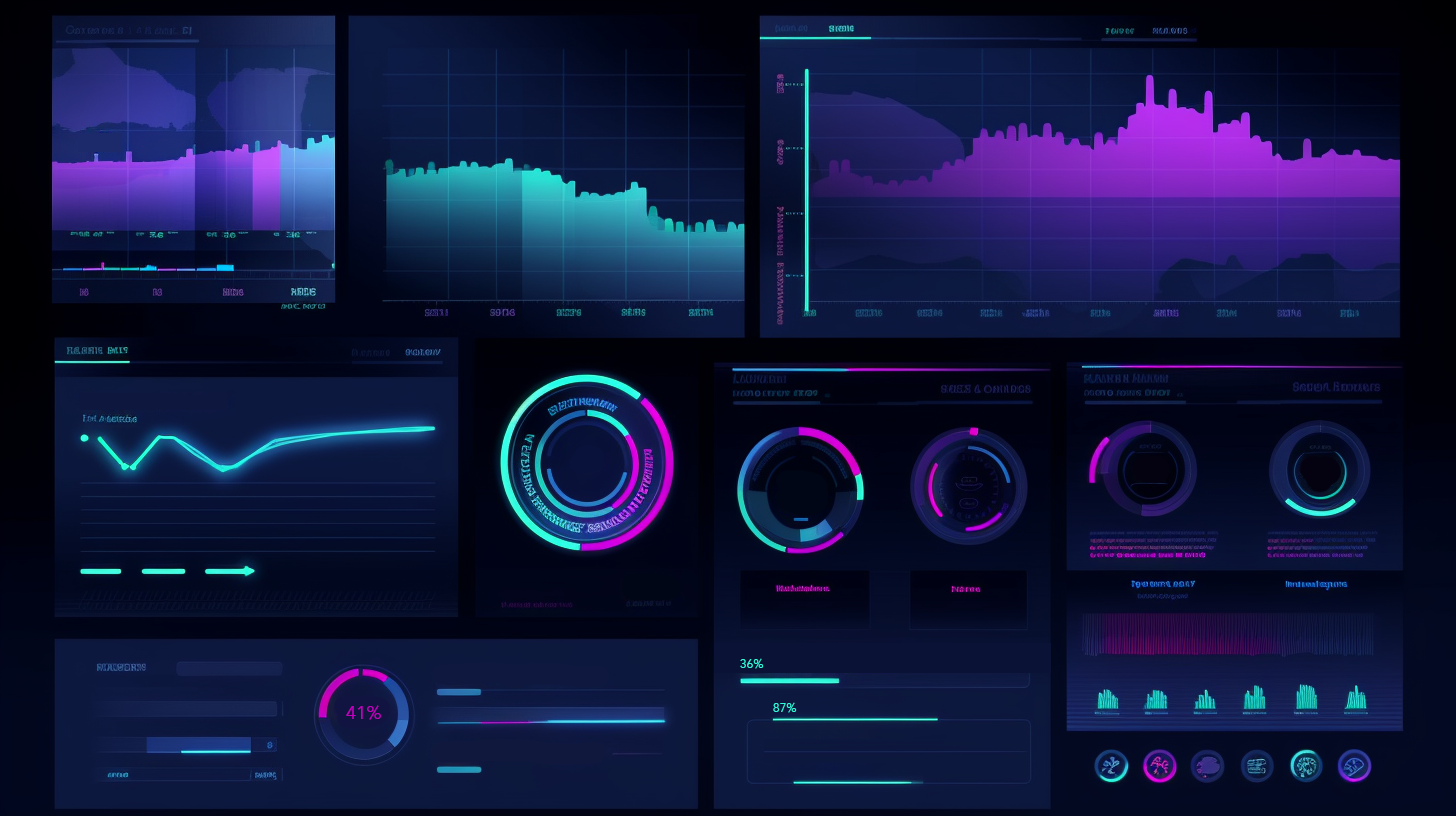Email Marketing Specialist
A Comprehensive Guide to Becoming an Email Marketing Specialist
An Email Marketing Specialist is a digital marketing professional who focuses on creating, implementing, and managing a company's email marketing strategy. Their primary goal is to engage with current and potential customers, nurture leads, build brand loyalty, and ultimately drive sales or other desired actions through email communication. This role involves a blend of creative and analytical skills to craft compelling messages, segment audiences effectively, and measure campaign performance.
Working as an Email Marketing Specialist can be quite engaging. You'll often find yourself at the intersection of creativity and data, designing visually appealing emails while meticulously tracking their performance. The ability to directly communicate with an audience and see the immediate impact of your campaigns through open rates, click-through rates, and conversions can be highly rewarding. Furthermore, the field is constantly evolving with new technologies and strategies, offering continuous learning opportunities.
Introduction to Email Marketing Specialist
This article will delve into the various facets of a career as an Email Marketing Specialist. We will explore the core responsibilities, the essential tools and technologies used, educational pathways including online learning, career progression, ethical considerations, and current industry trends. Our aim is to provide a comprehensive overview to help you determine if this career path aligns with your aspirations and skills.
Definition and core purpose of the role
At its core, an Email Marketing Specialist is responsible for the entire lifecycle of an email marketing campaign. This includes planning and strategizing campaign goals, designing or overseeing the design of email templates, writing persuasive and engaging email copy, managing and segmenting email lists, scheduling and deploying emails, and analyzing campaign results to optimize future efforts. The overarching purpose is to build and maintain a strong relationship between a brand and its audience, guiding them through the customer journey.
These professionals work to ensure that emails are not only delivered successfully but are also opened, read, and acted upon by the recipients. They strive to send the right message to the right people at the right time, making their communications relevant and valuable. This requires a deep understanding of the target audience, their needs, and their online behavior.
Ultimately, the Email Marketing Specialist plays a crucial role in achieving business objectives such as increasing brand awareness, generating leads, driving website traffic, promoting products or services, and fostering customer loyalty and retention. They are key contributors to a company's overall digital marketing success.
Historical evolution of email marketing as a discipline
Email marketing has come a long way since its inception. The first mass email campaign is often cited as occurring in 1978, sent by Gary Thuerk of Digital Equipment Corp to a list of ARPANET users. This early form of email marketing, while rudimentary by today's standards, demonstrated the potential of email as a direct communication channel.
Throughout the 1990s, as internet adoption grew, so did the use of email for marketing. However, this era also saw the rise of unsolicited bulk emails, commonly known as spam. This led to the development of anti-spam legislation in the early 2000s, such as the CAN-SPAM Act in the United States, which set rules for commercial email and gave recipients the right to have businesses stop emailing them.
The evolution continued with the advent of more sophisticated email marketing platforms, enabling better design, personalization, automation, and analytics. The focus shifted from batch-and-blast emails to more targeted and segmented communications. Today, email marketing is a highly refined discipline that emphasizes data-driven strategies, customer-centric messaging, and integration with other marketing channels. The rise of mobile devices has also necessitated responsive email design to ensure a seamless experience across all screens.
Key industries employing Email Marketing Specialists
Email Marketing Specialists are in demand across a wide array of industries because email remains a fundamental tool for communication and customer engagement. Any company looking to reach its audience through email will likely need an Email Marketing Specialist.
Some of the most prominent industries include e-commerce and retail, where email is vital for promotions, order confirmations, and abandoned cart recovery. The technology sector, including SaaS companies, relies heavily on email for lead nurturing, product updates, and customer onboarding. Travel and hospitality businesses use email for booking confirmations, travel deals, and loyalty programs.
Other sectors that frequently hire Email Marketing Specialists include media and publishing (for newsletters and content distribution), financial services (for account updates and promotional offers), healthcare (for patient communication and health information), and non-profit organizations (for fundraising and supporter engagement). Essentially, any industry that values direct communication with its customer base will find a role for an Email Marketing Specialist.
Basic distinction between email marketing and other digital marketing roles
While email marketing is a crucial component of digital marketing, it differs from other specialized roles. For instance, a Social Media Manager focuses on building and engaging communities on platforms like Facebook, Instagram, and X (formerly Twitter). Their expertise lies in content creation tailored for social media, community management, and running social media advertising campaigns.
An SEO Specialist, on the other hand, works to improve a website's visibility on search engine results pages (SERPs). Their responsibilities include keyword research, on-page and off-page optimization, technical SEO, and link building. Their goal is to drive organic traffic to the website.
A Content Marketing Specialist (or Content Writer) develops and distributes valuable, relevant, and consistent content to attract and retain a clearly defined audience. This can include blog posts, articles, videos, infographics, and podcasts. While an Email Marketing Specialist will often be involved in creating email content, a Content Marketing Specialist has a broader focus on content across various platforms. An Email Marketing Specialist leverages this content for email campaigns, often working closely with content creators to ensure messaging alignment.
Key Responsibilities of an Email Marketing Specialist
The role of an Email Marketing Specialist is multifaceted, involving a combination of strategic planning, creative execution, technical understanding, and analytical rigor. These professionals are pivotal in shaping and maintaining a company's direct line of communication with its audience. Their duties are critical for nurturing leads, engaging customers, and driving business growth.
Designing and executing email campaigns
A primary responsibility of an Email Marketing Specialist is the end-to-end management of email campaigns. This begins with understanding the campaign's objectives, whether it's to promote a new product, share company news, drive event registrations, or nurture leads. Based on these objectives, the specialist will define the target audience and develop a compelling message.
The design phase involves creating visually appealing and on-brand email templates. While some specialists may handle the design themselves using email platform builders or basic HTML/CSS, others might collaborate with graphic designers. The content, including subject lines, body copy, and calls-to-action (CTAs), must be crafted to be engaging and persuasive, encouraging recipients to take the desired action.
Execution involves setting up the campaign within an email marketing platform, ensuring all links are working, and scheduling the email send. Post-send, the specialist monitors the campaign's performance, tracking key metrics to assess its success and identify areas for improvement.
To learn the fundamentals of designing and executing email campaigns, consider exploring introductory courses. These often cover the basics of email strategy, content creation, and using email marketing platforms.
For those looking to deepen their understanding of crafting effective email campaigns, certain books provide invaluable insights. These resources often cover best practices in email design, copywriting, and strategy.
A/B testing for subject lines and content
A/B testing, also known as split testing, is a critical activity for Email Marketing Specialists. It involves creating two or more versions of an email element—such as the subject line, call-to-action button, email copy, layout, or images—and sending each version to a different segment of the email list. The goal is to determine which version performs better based on metrics like open rates, click-through rates, or conversion rates.
For example, a specialist might test two different subject lines to see which one achieves a higher open rate. Or they might test two different CTA button colors to see which one generates more clicks. By systematically testing different elements, specialists can gather data-driven insights into what resonates most with their audience.
These insights are then used to optimize future email campaigns, leading to improved engagement and better results over time. Effective A/B testing requires a methodical approach, careful analysis of results, and a commitment to continuous improvement. AI-powered tools are increasingly being used to streamline A/B testing by simultaneously evaluating multiple variations and identifying winning elements.
List segmentation and audience targeting strategies
Not all subscribers are the same, and sending generic, one-size-fits-all emails is rarely effective. Email Marketing Specialists are responsible for list segmentation, which is the process of dividing a larger email list into smaller, more defined groups based on specific criteria. These criteria can include demographics (age, gender, location), psychographics (interests, lifestyle), purchase history, engagement level (how often they open or click emails), website behavior, or stage in the customer journey.
Once the list is segmented, specialists can develop targeted email campaigns with personalized content and offers that are more relevant to each specific group. For instance, a clothing retailer might send different promotional emails to customers who have previously purchased men's clothing versus women's clothing, or to those who have shown interest in a particular brand.
Effective audience targeting leads to higher open rates, click-through rates, and conversions because the emails are more likely to resonate with the recipients' interests and needs. It also helps to reduce unsubscribe rates by ensuring that subscribers receive content they find valuable. AI is increasingly used to enable smarter segmentation by predicting user behavior and preferences.
Compliance with regulations (e.g., CAN-SPAM, GDPR)
Adherence to email marketing regulations is a non-negotiable aspect of an Email Marketing Specialist's role. Several laws and regulations govern how businesses can send commercial emails, designed to protect consumers from spam and ensure their privacy. Key regulations include the CAN-SPAM Act in the United States, the General Data Protection Regulation (GDPR) in Europe, and Canada's Anti-Spam Legislation (CASL).
These regulations typically require businesses to obtain explicit consent before sending marketing emails (opt-in), clearly identify themselves as the sender, provide a valid physical mailing address, offer a clear and easy way for recipients to unsubscribe (opt-out), and promptly honor opt-out requests. Subject lines must not be deceptive, and the email should clearly indicate if it is an advertisement.
Failure to comply with these regulations can result in significant financial penalties and damage to a company's reputation. Therefore, Email Marketing Specialists must stay informed about these laws and ensure that all email marketing practices are compliant. This includes managing consent, maintaining accurate records, and ensuring third-party email service providers also adhere to these standards. Ongoing attention to data privacy is crucial.
Essential Tools and Technologies
To effectively carry out their responsibilities, Email Marketing Specialists rely on a variety of tools and technologies. These platforms and software solutions streamline workflows, enable sophisticated campaign execution, provide valuable insights, and help maintain compliance. Proficiency in these tools is often a key requirement for an Email Marketing Specialist.
Email service platforms (e.g., Mailchimp, HubSpot)
Email Service Platforms (ESPs) are the workhorses of email marketing. These platforms provide the infrastructure for creating, sending, and managing email campaigns. Popular examples include Mailchimp, HubSpot, Constant Contact, Sendinblue (now Brevo), and ActiveCampaign. While we avoid endorsing specific vendors, understanding the general capabilities of such platforms is essential.
ESPs typically offer features such as drag-and-drop email builders, pre-designed templates, list management and segmentation tools, automation capabilities (e.g., for welcome series or abandoned cart emails), A/B testing functionality, and reporting dashboards. Some platforms also offer more advanced features like predictive sending, AI-powered content suggestions, and CRM integration.
Choosing the right ESP often depends on the size of the business, the complexity of its email marketing needs, budget, and integration requirements with other marketing tools. Specialists need to be adept at navigating these platforms to build campaigns, manage subscriber data, and interpret performance reports.
Many aspiring and practicing Email Marketing Specialists turn to online courses to gain hands-on experience with popular ESPs. These courses often provide project-based learning to build practical skills.
Analytics tools for tracking open rates and CTR
Measuring the performance of email campaigns is crucial for optimization and demonstrating ROI. Email Marketing Specialists use analytics tools, often built into ESPs or integrated third-party platforms like Google Analytics, to track key metrics. Common metrics include open rates (the percentage of recipients who opened an email), click-through rates (CTR - the percentage of recipients who clicked on one or more links within an email), conversion rates (the percentage of recipients who completed a desired action, like making a purchase), and unsubscribe rates.
By analyzing these metrics, specialists can understand what's working and what's not. For example, a low open rate might indicate a weak subject line or issues with email deliverability. A high open rate but low CTR could suggest that the email content or call-to-action needs improvement.
Analytics tools also provide insights into subscriber behavior, such as which links were clicked most, the devices used to open emails, and the times of highest engagement. This data helps specialists refine their strategies, improve targeting, and make data-driven decisions to enhance future campaign performance.
Understanding how to leverage analytics is a core skill. Consider resources that delve into marketing analytics to strengthen your data interpretation capabilities.
CRM integration workflows
Customer Relationship Management (CRM) systems are central repositories for customer data, including contact information, interaction history, purchase records, and communication preferences. Integrating ESPs with CRM systems is vital for a holistic view of the customer and for enabling highly personalized and targeted email marketing.
This integration allows for seamless data flow between the two systems. For example, new leads captured through a website form can automatically be added to the CRM and then synced to the appropriate email list in the ESP. Customer interactions with emails (opens, clicks) can be logged back into the CRM, providing sales and support teams with valuable context.
Email Marketing Specialists often work on setting up and managing these integration workflows. This might involve configuring data synchronization rules, mapping fields between the ESP and CRM, and ensuring data accuracy and consistency. Effective CRM integration empowers specialists to create more sophisticated segmentation, trigger automated email sequences based on CRM data (e.g., a follow-up email after a sales call), and personalize email content with dynamic information pulled from the CRM.
Emerging AI-driven personalization tools
Artificial Intelligence (AI) is rapidly transforming the landscape of email marketing, particularly in the realm of personalization. AI-driven tools analyze vast amounts of customer data – including demographics, browsing history, purchase patterns, and email engagement – to deliver highly individualized email experiences at scale.
These tools can help with various aspects of personalization. For instance, AI can generate personalized product recommendations, dynamically adjust email content based on individual preferences or real-time behavior, and optimize send times for each subscriber to maximize engagement. Some AI tools can even assist in crafting personalized subject lines and email copy, or create different versions of an email for different customer segments.
Email Marketing Specialists are increasingly expected to understand and leverage these AI-powered capabilities. While AI can automate many tasks, human oversight is still crucial to ensure brand voice consistency, ethical data use, and strategic alignment. The goal is to use AI to enhance, not replace, the human element in creating meaningful customer connections.
The integration of AI is a significant trend, and courses focusing on AI in marketing can provide a competitive edge.
Formal Education Pathways
While practical experience and a strong portfolio are highly valued in the field of email marketing, a solid educational foundation can provide a strong starting point and a deeper understanding of marketing principles. Various formal education pathways can lead to a career as an Email Marketing Specialist, each offering unique advantages.
Relevant undergraduate degrees (marketing, communications)
A bachelor's degree in marketing is a common and highly relevant educational background for aspiring Email Marketing Specialists. Marketing programs typically cover foundational concepts such as consumer behavior, market research, branding, marketing strategy, and digital marketing principles. These courses provide a broad understanding of the marketing landscape, which is essential for developing effective email campaigns.
Similarly, a degree in communications can be very beneficial. Communications programs emphasize clear and persuasive writing, audience analysis, message development, and understanding different communication channels. These skills are directly applicable to crafting compelling email copy and designing effective communication strategies.
Other related degrees, such as business administration (with a marketing concentration), journalism, or even psychology (for understanding consumer behavior), can also provide a good foundation. Regardless of the specific major, courses that develop analytical skills, writing proficiency, and an understanding of digital technologies are particularly valuable.
Certifications in digital marketing or data analytics
In addition to a formal degree, or sometimes as an alternative pathway for career changers, certifications can significantly boost an Email Marketing Specialist's credentials. Digital marketing certifications, offered by various industry organizations and educational platforms, often cover a broad range of digital marketing topics, including email marketing, SEO, social media marketing, and content marketing. These certifications demonstrate a foundational knowledge of the digital ecosystem.
More specialized certifications focusing specifically on email marketing or marketing automation platforms (like those offered by HubSpot, Mailchimp, or Salesforce Marketing Cloud) can be particularly valuable. These often involve hands-on training with the specific tools, which is a practical skill highly sought by employers. For those interested in the data-driven side of email marketing, certifications in data analytics can also be advantageous, showcasing an ability to interpret campaign data and derive actionable insights.
Certifications can be a quicker way to gain specific skills and knowledge, and they are often more focused on current industry practices than traditional degree programs. They are particularly useful for individuals looking to upskill or pivot into the email marketing field.
Many comprehensive digital marketing courses also offer certificates upon completion, which can be valuable additions to a resume.
Role of graduate studies in strategic marketing
For individuals aspiring to leadership roles or more strategic positions within marketing, a graduate degree, such as a Master's in Marketing or an MBA with a marketing specialization, can be beneficial. These programs typically delve deeper into marketing strategy, market research, advanced analytics, brand management, and marketing leadership.
While not usually a strict requirement for entry-level or even mid-level Email Marketing Specialist roles, a graduate degree can provide a competitive edge for higher-level positions like Email Marketing Manager, Director of Demand Generation, or Chief Marketing Officer. These roles often require a more comprehensive understanding of how email marketing fits into the broader business strategy and the ability to lead teams and manage budgets effectively.
Graduate studies can also be valuable for those interested in the academic or research side of marketing, potentially leading to careers in market research firms or academia. However, for many practicing Email Marketing Specialists, continuous learning through industry certifications, workshops, and staying updated with industry trends is often prioritized over a graduate degree unless specific career advancement goals warrant it.
Academic research areas impacting email marketing
Academic research continually contributes to the evolution of email marketing practices. Researchers in fields like marketing, consumer psychology, human-computer interaction, and data science explore various aspects that inform how specialists approach email campaigns. For instance, studies on consumer behavior investigate how individuals process information in emails, what motivates them to open and click, and how different message framings affect their decisions.
Research in data analytics and machine learning is leading to more sophisticated segmentation techniques, predictive modeling for customer behavior, and AI-driven personalization. Studies on user experience (UX) and design principles inform the creation of more effective and user-friendly email layouts and interactive elements.
Furthermore, academic inquiry into privacy concerns, ethical data use, and the psychological impact of digital communication helps shape best practices and regulatory discussions in the email marketing industry. Staying aware of relevant academic findings can provide Email Marketing Specialists with a deeper understanding of the underlying principles that drive effective email communication and help them anticipate future trends.
Online Learning and Skill Development
The digital nature of email marketing makes it particularly well-suited for online learning. Numerous online courses, tutorials, and resources are available, offering flexible and accessible pathways to acquire the necessary skills. This is excellent news for those looking to enter the field, supplement formal education, or upskill in their current roles. Online learning empowers individuals to build a strong foundation and stay current in this ever-evolving discipline.
Platforms like OpenCourser make it easy to find and compare thousands of online courses from various providers. You can search for specific skills, explore different learning formats, and read reviews to find the best fit for your learning style and career goals.
Core skills to prioritize (copywriting, data analysis)
Two of the most crucial skills for an Email Marketing Specialist are copywriting and data analysis. Effective copywriting is about more than just good grammar; it's the art and science of writing persuasive content that grabs attention, engages the reader, and motivates them to take action. This includes crafting compelling subject lines that get emails opened, writing clear and concise body copy, and creating strong calls-to-action (CTAs) that drive clicks.
Data analysis is equally vital. Specialists must be able to interpret email campaign metrics (open rates, CTR, conversion rates, etc.) to understand what’s working, what’s not, and why. This involves using analytics tools, identifying trends, and drawing actionable insights to optimize future campaigns. A comfort with numbers and an analytical mindset are key.
Beyond these, other important skills include understanding email marketing platforms, list segmentation techniques, basic HTML/CSS for email customization, A/B testing methodologies, and knowledge of email deliverability best practices and anti-spam regulations. Soft skills like creativity, attention to detail, project management, and communication are also highly valued.
Numerous online courses are available to help develop these core skills. For copywriting, look for courses that focus on persuasive writing and marketing communication. For data analysis, courses in marketing analytics or data interpretation can be beneficial.
For those who prefer learning through books, several excellent texts cover the art of persuasive writing and the science of marketing analytics.
Building portfolios through freelance or mock campaigns
For aspiring Email Marketing Specialists, especially those without extensive professional experience, a strong portfolio is essential. A portfolio showcases your skills and demonstrates your ability to create and manage effective email campaigns. Online courses can provide foundational knowledge, but practical application is key.
One way to build a portfolio is through freelance projects. Platforms connecting freelancers with clients often have opportunities for email marketing tasks, such as writing email copy, designing templates, or managing small campaigns. Even pro bono work for non-profits or small businesses can provide valuable experience and portfolio pieces.
Another approach is to create mock campaigns. Choose a hypothetical (or real, with permission) business and develop a complete email marketing strategy for it. This could include defining objectives, identifying the target audience, creating sample emails (including subject lines, copy, and visuals), outlining an automation workflow, and even projecting potential results. Documenting your thought process and the rationale behind your decisions is as important as the final output.
Some online courses incorporate portfolio-building projects, guiding learners through the creation of campaign materials. OpenCourser’s "Activities" section on course pages can also suggest projects to supplement your learning and help build out your portfolio.
Balancing platform-specific training with broader strategy courses
While proficiency in specific email marketing platforms (like Mailchimp, HubSpot, etc.) is important and often listed in job descriptions, it's equally crucial to develop a strong understanding of broader email marketing strategy. Platform-specific training teaches you how to use the tools, but strategy courses teach you why and what to do.
A deep understanding of email marketing strategy encompasses concepts like customer journey mapping, lead nurturing, lifecycle marketing, content strategy for email, advanced segmentation techniques, and deliverability best practices. These strategic principles are transferable across different platforms and industries.
A balanced approach is ideal. Start by learning the fundamentals of email marketing strategy. Then, gain proficiency in one or two widely used email marketing platforms. Many online courses offer this combination, teaching strategic concepts alongside practical application within a specific tool. Remember that tools and platforms evolve, but a strong strategic foundation will remain valuable throughout your career.
OpenCourser's "Learner's Guide" offers articles on how to create a structured curriculum for yourself, which can be helpful in planning your learning path to balance strategic and platform-specific knowledge.
Evaluating course credibility and industry alignment
With a vast number of online courses available, it's important to evaluate their credibility and alignment with current industry practices. Look for courses taught by experienced industry professionals or reputable institutions. Check instructor bios and reviews from past learners.
Consider the course content: Is it up-to-date with the latest trends and technologies in email marketing? Does it cover key areas like automation, personalization, analytics, and compliance? Look for courses that offer practical exercises, case studies, or portfolio-building projects, as these provide hands-on experience.
The relevance of certifications offered by the course can also be a factor. Some certifications are widely recognized by employers, while others may be less so. Industry alignment also means ensuring the skills taught are those currently in demand. Reviewing job descriptions for Email Marketing Specialist roles can give you an idea of the skills and tools employers are looking for. OpenCourser provides features like course summaries, instructor information, and sometimes even syllabi and reviews, which can aid in this evaluation process. The "Traffic lights" section on OpenCourser course pages can also highlight strengths and potential concerns at a glance.
These courses offer a good starting point for learning about email marketing essentials, taught by recognized institutions and platforms.
Career Progression for Email Marketing Specialists
A career as an Email Marketing Specialist offers various avenues for growth and advancement within the broader digital marketing landscape. With experience and a proven track record of success, specialists can move into more senior roles, take on greater responsibilities, and command higher salaries. The progression often involves a deepening of strategic capabilities and, in some cases, leadership responsibilities.
Entry-level roles (e.g., Marketing Coordinator)
For individuals starting their careers, an entry-level role such as Marketing Coordinator or Junior Email Marketing Specialist is a common entry point. In these positions, responsibilities might include assisting with campaign setup, drafting email copy, managing email lists, pulling basic reports, and supporting senior members of the marketing team. An entry-level Email Marketing Specialist in the US can expect to earn an average salary of around $59,561 per year.
These roles provide invaluable hands-on experience with email marketing platforms and the day-to-day tasks involved in executing campaigns. It's an opportunity to learn from experienced colleagues, develop foundational skills, and begin building a portfolio of work. Strong performance and a willingness to learn can lead to a promotion to an Email Marketing Specialist role, where one takes on more autonomy and responsibility for campaign strategy and execution.
Consider these courses if you are looking to build foundational knowledge for an entry-level position.
Mid-career transitions to CRM management or digital strategy
As Email Marketing Specialists gain experience (typically 2-5 years), they develop a deeper understanding of customer behavior, data analysis, and marketing automation. This expertise opens doors to mid-career transitions into related roles. For instance, some may move into CRM (Customer Relationship Management) management, focusing on optimizing the use of CRM systems for customer data management, sales enablement, and marketing integration. Given their experience with list segmentation and customer data, this is a natural progression.
Others might transition into broader digital strategy roles. Their experience in developing and executing targeted email campaigns, analyzing performance, and understanding the customer lifecycle provides a strong foundation for developing comprehensive digital marketing strategies across multiple channels. They might become Digital Marketing Managers or Marketing Automation Specialists, overseeing a wider range of marketing activities. Mid-level specialists often earn salaries ranging from $52,000 to $81,000.
These transitions often involve leveraging the strategic and analytical skills honed as an Email Marketing Specialist to take on more complex challenges and responsibilities. Continuous learning in areas like marketing analytics, automation technologies, and overall digital marketing trends is crucial for making these transitions successfully.
Leadership paths (Email Marketing Manager, Director of Demand Generation)
With significant experience (5+ years) and a strong track record, Email Marketing Specialists can advance to leadership positions. An Email Marketing Manager typically oversees the entire email marketing function, develops the overall email strategy, manages a team of specialists, and is responsible for achieving key performance indicators (KPIs) related to email marketing. They often have budget responsibility and work closely with other marketing leaders and stakeholders.
Further advancement can lead to roles like Director of Demand Generation or Director of Digital Marketing. In these positions, individuals are responsible for a broader range of marketing activities aimed at generating leads, acquiring customers, and driving revenue growth. Email marketing remains a key component, but the scope of responsibility expands to include other channels and strategies. The average salary for a senior-level Email Marketing Specialist is around $85,051 per year. Email Marketing Managers can earn between $71,532 and $115,000, with some sources indicating up to $95,000 annually.
These leadership roles require strong strategic thinking, analytical skills, team management capabilities, and a deep understanding of the entire marketing funnel. The ability to align email marketing efforts with overall business objectives is paramount.
Salary benchmarks and growth projections
The salary for an Email Marketing Specialist can vary based on factors such as experience, location, company size, and industry. According to recent data, the average annual pay for an Email Marketing Specialist in the United States is around $69,583 to $74,105. Some sources place the average closer to $72,175, with typical ranges between $64,231 and $79,558. PayScale reports an average of $57,856. Entry-level positions might start around $55,000 to $59,561 annually, while experienced specialists can earn upwards of $85,000, and top earners can make $111,000 or more.
The job outlook for Email Marketing Specialists is positive. The U.S. Bureau of Labor Statistics projects a 6% growth for marketing specialists in general through 2032, which is about average. Other sources suggest a higher growth rate specifically for email marketing roles, with some projecting a 10% to 19% increase in demand over the next decade. This demand is driven by the continued effectiveness of email as a marketing channel and the increasing need for businesses to engage with customers digitally. As businesses increasingly rely on digital strategies, the role of skilled email marketers becomes more integral.
The field is considered to be in high demand, and email marketing remains a critical component of business success. The global email marketing market is also projected to grow significantly, indicating a healthy future for the profession. According to Zippia, the demand for email marketing specialists is projected to grow 19% from 2018 to 2028. Similarly, Jobicy reports a projected 10% growth over the next decade for this role. For more salary details, you can explore resources like ZipRecruiter or Coursera's career guide.
Ethical Considerations in Email Marketing
While email marketing is a powerful tool for businesses, it comes with significant ethical responsibilities. Email Marketing Specialists must navigate these considerations carefully to maintain trust with their audience, uphold their company's reputation, and comply with legal standards. Ethical practices are not just about avoiding penalties; they are fundamental to building sustainable customer relationships.
Privacy concerns and data security practices
Privacy is a paramount concern in email marketing. Specialists handle sensitive customer data, including email addresses, names, purchase history, and browsing behavior. It is ethically imperative to protect this data from unauthorized access, breaches, and misuse. This involves implementing robust data security practices, such as secure data storage, access controls, and encryption where appropriate.
Transparency with subscribers about how their data is collected, used, and stored is also crucial. Privacy policies should be clear, accessible, and accurately reflect the company's data handling practices. Email Marketing Specialists should be mindful of only collecting data that is necessary for their marketing purposes and ensuring that data is not kept longer than needed.
The increasing focus on data privacy worldwide, exemplified by regulations like GDPR, underscores the importance of these ethical obligations. Respecting user privacy is no longer just good practice; it's a legal and ethical necessity.
Balancing personalization with user consent
Personalization is a key strategy for making emails more relevant and engaging. However, there's a fine line between effective personalization and practices that could be perceived as intrusive or "creepy." Ethical email marketing requires balancing the desire to personalize content with a profound respect for user consent and expectations.
Subscribers should have a clear understanding of what data is being used for personalization and have control over their preferences. Obtaining explicit consent for data collection and its use in personalized marketing is crucial. This means not making assumptions about what a subscriber might want to see based on loosely related data points without their awareness.
The goal is to use personalization to add value for the subscriber, not just to serve the company's marketing objectives. When done ethically, personalization can enhance the customer experience and build stronger relationships. However, if it oversteps boundaries or uses data in ways subscribers haven't agreed to, it can quickly erode trust.
Environmental impact of email storage and spam
While often overlooked, digital activities, including email marketing, have an environmental footprint. The storage of vast amounts of email data on servers consumes energy, as does the transmission of emails across the internet. Spam emails, in particular, contribute to unnecessary energy consumption and digital waste.
Ethical Email Marketing Specialists can contribute to mitigating this impact by practicing responsible list management. This includes regularly cleaning email lists to remove inactive or invalid addresses, thus reducing the volume of unnecessary emails sent and stored. Avoiding spammy tactics not only improves deliverability and sender reputation but also contributes to a more sustainable digital environment.
While the individual impact of a single email marketer might seem small, collective responsible practices across the industry can make a difference. This includes being mindful of the frequency of emails and ensuring that every communication provides genuine value, reducing the likelihood of it being perceived (or treated) as digital clutter.
Industry standards for ethical list-building
Building an email list is fundamental to email marketing, but how that list is built is a critical ethical consideration. Ethical list-building practices prioritize obtaining explicit consent from individuals before adding them to a marketing list. This means avoiding practices like purchasing email lists, scraping email addresses from websites, or automatically opting people in without their clear agreement.
The industry standard is to use opt-in mechanisms, preferably double opt-in, where a subscriber confirms their email address after initially signing up. This ensures that subscribers genuinely want to receive communications and helps to build a more engaged and responsive email list. Transparency at the point of sign-up is also key: individuals should know what kind of emails they will receive and how often.
Ethical list-building not only complies with anti-spam laws but also fosters trust and respect with potential customers. A list built on genuine interest and consent will almost always yield better engagement and long-term results than a list acquired through questionable means.
Challenges and Industry Trends
The field of email marketing is dynamic, constantly shaped by technological advancements, evolving consumer behaviors, and changes in the digital landscape. Email Marketing Specialists must stay abreast of these challenges and trends to remain effective and adapt their strategies accordingly. Anticipating and responding to these shifts is key to long-term success in this career.
Adapting to algorithm changes in email providers
Email providers like Gmail, Outlook, and Yahoo Mail continuously update their algorithms for filtering and displaying emails. These algorithms aim to protect users from spam and prioritize emails that are likely to be relevant and engaging. Changes in these algorithms can significantly impact email deliverability – the ability of emails to reach the intended recipients' inboxes rather than being routed to spam folders.
Email Marketing Specialists face the ongoing challenge of understanding and adapting to these changes. This involves staying updated on deliverability best practices, monitoring sender reputation, ensuring proper email authentication (e.g., SPF, DKIM, DMARC), and focusing on sending high-quality, engaging content that signals to email providers that their emails are legitimate and valued by recipients.
Maintaining a healthy email list by regularly removing inactive subscribers and minimizing spam complaints also plays a crucial role in navigating these algorithmic shifts. It's a continuous process of monitoring, testing, and adjusting strategies to ensure optimal inbox placement.
Impact of AI on content creation and targeting
Artificial Intelligence (AI) is making a significant impact on email marketing, offering both exciting opportunities and new challenges. AI tools can now assist with, and in some cases automate, various aspects of email marketing, including content creation and audience targeting. For instance, generative AI can help draft subject lines, email copy, and even suggest design elements.
In terms of targeting, AI algorithms can analyze vast amounts of customer data to identify micro-segments and enable hyper-personalization, delivering messages that are highly relevant to individual recipients. AI can also predict optimal send times and A/B test multiple variables simultaneously to improve campaign performance.
The challenge for Email Marketing Specialists is to learn how to effectively leverage these AI tools while maintaining authenticity and a human touch. It’s about using AI to enhance efficiency and effectiveness, not to replace strategic thinking or genuine customer understanding. Ethical considerations around data usage in AI-driven personalization also need careful management. According to Forbes, AI is poised to redefine email marketing by mining consumer behavior data to craft highly engaging content.
To learn more about how AI is changing the email marketing landscape, consider exploring courses that focus on the intersection of AI and marketing.
Declining open rates and inbox saturation
One of the persistent challenges in email marketing is combating inbox saturation and the potential for declining open rates. Consumers are bombarded with emails daily, leading to "inbox fatigue" where they become more selective about which emails they open and engage with. This makes it increasingly difficult for marketers to capture attention and stand out.
To address this, Email Marketing Specialists must focus on delivering exceptional value and relevance in every email. This means crafting highly compelling subject lines, personalizing content to individual needs and preferences, and ensuring that emails are mobile-friendly and visually appealing. Building a strong sender reputation and trust with subscribers is also paramount.
Strategies like rigorous A/B testing, advanced segmentation, and leveraging automation to send timely and triggered emails can help improve engagement. Ultimately, the key is to shift from a quantity-focused approach to a quality-focused one, ensuring that every email sent provides a clear benefit to the recipient and strengthens the relationship with the brand.
Shift toward omnichannel integration
Email marketing no longer exists in a silo. Modern consumers interact with brands across multiple touchpoints – social media, websites, mobile apps, physical stores, and email. A significant industry trend is the shift towards omnichannel integration, where email marketing is seamlessly woven into a larger, cohesive customer experience strategy.
This means that email campaigns should be consistent with messaging and branding across other channels, and data from various touchpoints should be used to inform email content and timing. For example, a customer's website browsing behavior might trigger a personalized follow-up email, or an in-store purchase could lead to an email receipt with related product suggestions.
Email Marketing Specialists need to collaborate with teams managing other marketing channels to ensure a unified approach. This requires an understanding of how email fits into the broader customer journey and how it can complement and enhance other marketing efforts. The goal is to create a seamless and consistent experience for the customer, regardless of how or where they interact with the brand. The future of email marketing is expected to focus more on targeted content through segmentation and increased reliance on automation.
Frequently Asked Questions (Career Focus)
Embarking on a career as an Email Marketing Specialist, or considering a pivot into the field, naturally brings up many questions. This section aims to address some of the most common queries, focusing on career stability, skill requirements, and the nature of the work. Understanding these aspects can help you make a more informed decision about pursuing this path.
Is coding knowledge required for this role?
While deep coding expertise isn't always mandatory, having some basic knowledge of HTML and CSS can be very beneficial for an Email Marketing Specialist. Many email marketing platforms offer drag-and-drop editors that allow users to create emails without writing code. However, understanding HTML and CSS can help with troubleshooting display issues across different email clients, making custom modifications to templates, and ensuring emails are responsive on various devices.
Some roles, particularly those in smaller companies where specialists wear many hats, or roles that require highly customized email designs, may place a greater emphasis on coding skills. For larger organizations with dedicated email developers or designers, the specialist might focus more on strategy, content, and analytics. Generally, a foundational understanding is an asset, but it's not always a strict prerequisite if you possess strong skills in other core areas of email marketing.
If you're interested in acquiring basic web development skills relevant to email marketing, there are many introductory courses available.
How does this career differ from social media marketing?
Email marketing and social media marketing are both crucial components of digital marketing, but they differ in their channels, strategies, and typical communication styles. Email Marketing Specialists focus on direct communication with a list of subscribers through their inboxes. The communication is typically more personalized and can be used for longer-form content, detailed promotions, and nurturing leads through targeted sequences.
Social Media Marketers, on the other hand, engage with audiences on public platforms like Facebook, Instagram, LinkedIn, and X (formerly Twitter). Their focus is often on building brand awareness, fostering community engagement, driving website traffic through shared content, and running social media advertising campaigns. The content is generally shorter, more visual, and designed for public consumption and interaction (likes, shares, comments).
While both roles aim to connect with audiences and drive business goals, the platforms and tactics used are distinct. However, there is often overlap and a need for collaboration to ensure consistent messaging and integrated campaigns across channels.
What industries hire the most Email Marketing Specialists?
Email Marketing Specialists are in demand across a wide variety of industries. Any business that communicates with its customers digitally is likely to employ or contract with email marketing professionals. Some of the most prominent sectors include e-commerce and retail, technology (especially SaaS), travel and hospitality, media and publishing, and financial services.
The marketing and advertising agencies also frequently hire Email Marketing Specialists to serve their diverse client bases. Additionally, non-profit organizations rely heavily on email for fundraising and communication. The healthcare and wellness sectors also utilize email for patient outreach and information dissemination. Essentially, the skills of an Email Marketing Specialist are transferable and valuable in nearly any industry that seeks to build and maintain relationships with an audience through direct digital communication.
Can freelancing be a viable path?
Yes, freelancing can be a very viable and rewarding path for Email Marketing Specialists. Many businesses, especially small to medium-sized enterprises (SMEs) and startups, may not have the need or budget for a full-time, in-house specialist but still require expert email marketing services. This creates a strong market for freelance email marketers.
Freelancers can offer a range of services, from developing email strategies and creating campaign content to managing email lists, setting up automations, and analyzing performance. Success as a freelancer often depends on building a strong portfolio, networking effectively, and consistently delivering results for clients. Platforms like Upwork and Fiverr, as well as direct outreach and referrals, are common ways for freelancers to find work.
The flexibility to choose projects, set your own hours, and potentially earn a higher income are attractive aspects of freelancing. However, it also requires strong self-discipline, business management skills (invoicing, contracts, etc.), and the ability to continuously market your services.
How susceptible is this role to automation?
Automation is a significant part of email marketing, and AI is further enhancing these capabilities. Many routine tasks, such as sending out scheduled emails, triggering responses based on user behavior (e.g., welcome emails, abandoned cart reminders), and segmenting lists based on predefined criteria, are already heavily automated. AI can also assist with A/B testing and content suggestions.
However, while automation handles the "how," the strategic "why" and "what" still require human expertise. Developing the overall email marketing strategy, understanding nuanced customer psychology, crafting truly creative and empathetic content, interpreting complex data patterns to derive insights, and making high-level decisions are less susceptible to full automation.
The role of the Email Marketing Specialist is evolving to work with automation and AI tools, leveraging them to become more efficient and effective, rather than being entirely replaced by them. Specialists who focus on strategic thinking, creativity, analytical interpretation, and adapting to new technologies are likely to remain in high demand.
What soft skills are most critical for success?
Beyond technical proficiency with email platforms and analytical tools, several soft skills are critical for success as an Email Marketing Specialist. Strong communication skills are paramount, not just in writing compelling email copy but also in articulating strategies and reporting results to team members or clients.
Creativity is essential for developing engaging campaign concepts, designing visually appealing emails, and finding innovative ways to connect with the audience. Attention to detail is crucial, as errors in emails (like typos, broken links, or incorrect segmentation) can damage brand reputation and campaign performance. Project management skills help specialists juggle multiple campaigns, meet deadlines, and manage workflows effectively.
Adaptability and a willingness to learn are also vital, as the email marketing landscape is constantly changing with new technologies, trends, and regulations. Finally, an analytical mindset and problem-solving abilities enable specialists to interpret data, identify challenges, and implement effective solutions.
These books can help in developing some of the crucial soft skills and strategic thinking required in marketing.
Conclusion
The role of an Email Marketing Specialist is a dynamic and rewarding career path for individuals who are passionate about digital communication, customer engagement, and data-driven results. It requires a unique blend of creativity, analytical acumen, and technical know-how. As businesses continue to recognize the power of direct email communication, the demand for skilled specialists is projected to remain strong.
Whether you are just starting to explore this field or are looking to advance your existing marketing career, the journey involves continuous learning and adaptation. By focusing on core skills like copywriting and data analysis, staying abreast of emerging technologies like AI, understanding ethical considerations and compliance, and building a strong portfolio, you can position yourself for success. Online learning platforms, such as OpenCourser, offer a wealth of resources to help you acquire the knowledge and skills needed. Remember to explore the Marketing category on OpenCourser for relevant courses and materials. With dedication and the right approach, a fulfilling career as an Email Marketing Specialist is well within reach.

